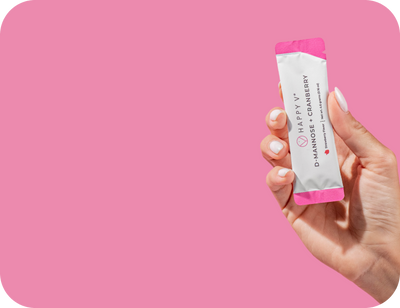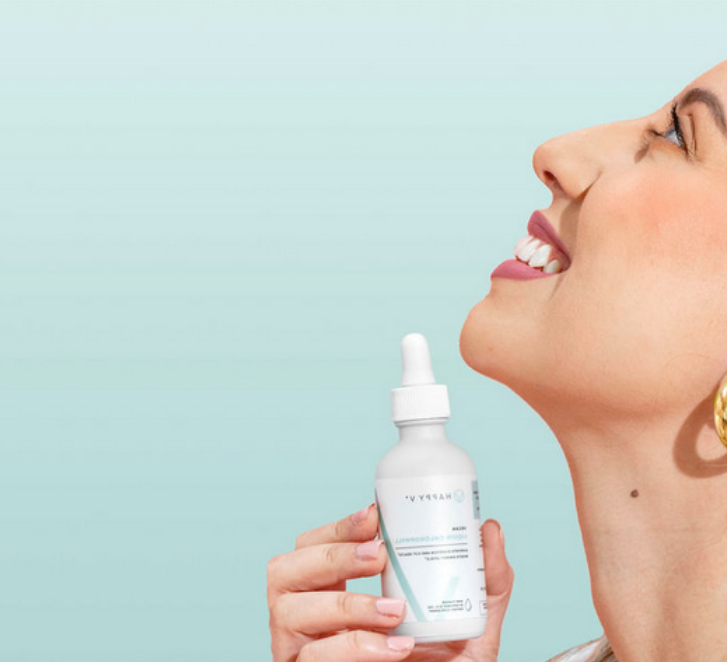- Fact Checked
- June 16, 2025
- 13 min read
What Does a Healthy Vagina Look Like? Understanding Normal Variations
Table of Contents
Table of Contents
No two vaginas look exactly alike. From labia shape and symmetry to skin tone and discharge patterns, “healthy” has a wide range, not one perfect template. Still, it’s understandable to wonder what you’re supposed to see when you look in the mirror and what changes might be worth a call to your healthcare provider.
This guide is here to take the pressure off and put the facts back in your hands. We’ll clarify what’s normal and what’s not-so-normal when it comes to vaginal and vulvar appearance, plus provide some science-backed ways to care for your vaginal health.
This post is for informational purposes only and does not constitute medical advice. See full disclaimer below.
Understanding Vaginal and Vulvar Anatomy
Many people use the word "vagina" to describe both internal and external body parts, but that's not truly accurate. And when it comes to your health and your body, accuracy matters. It will help you not only understand yourself better but ultimately communicate better with healthcare providers.
It’s important to remember that every body is different. While each vagina and vulva contains each of these anatomical parts, their appearance can differ. As for what those differences look like, we’ll get into those next. For now, let’s take a high school health class refresher to make sure everyone is on the same page:
- Vulva: The external female sex organs, which includes everything you can see from the outside
- Labia Majora: The outer folds or "lips" of the vulva—these are typically larger and may have hair
- Labia Minora: The inner folds of skin within the vulva—these are usually thinner and more sensitive
- Clitoris: A highly sensitive organ located at the top where the inner lips meet, important for sexual pleasure
- Glans Clitoris: The visible external portion of the clitoris
- Clitoral Hood: The fold of skin that covers and protects the clitoris
- Vaginal Opening (Introitus): The external opening that leads to the vaginal canal
- Vagina: The internal muscular canal that connects the vulva to the cervix—this is where menstrual blood exits during your period and where penetration occurs during intercourse
- Cervix: The lower part of the uterus that connects to the top of the vagina
- Urethral Opening: The small opening below the clitoris where urine exits the body (separate from the vaginal opening)
- Perineal Skin: The area of skin between the vaginal opening and the anus
- Hymen: A thin membrane that partially covers the vaginal opening in some people—it varies greatly in appearance and may be stretched or torn through various activities
Normal Appearance Variations: What's Typical?
Think about how many types of hair, eyes, hands, and feet there are in the world. Well, your vagina and vulva are another body part, meaning they also have an enormous range of what’s considered normal when it comes to appearance, especially when it comes to the labia, discharge, and overall color.
Common Variations in the Labia
The labia (both inner and outer) show perhaps the most variation among individuals.
Labia Minora (Inner Lips)
These can be short or long, symmetrical or asymmetrical. Some people have longer inner lips that extend beyond the outer lips, while others have inner lips that are completely tucked inside. Asymmetrical inner lips, where one side is longer or shaped differently than the other, are also completely normal and very common.
Labia Majora (Outer Lips)
The outer lips can be prominent and full, or smaller and less noticeable. Some people have curved outer lips, while others have straighter ones. Open outer lips that don't meet in the middle are just as healthy as those that do. Longer outer lips or smaller outer lips are both within the normal range.
Common Color Variations
The color of your vulva can range widely and may include shades of pink, red, purple, brown, or even darker tones. Color variation between different parts of the vulva is also completely normal. For example, your labia minora might be a different shade than your labia majora.
Color variations are often due to:
- Natural skin tone and ethnicity
- Hormonal changes during puberty, pregnancy, or menopause
- Increased blood flow during arousal
- Age-related changes
None of these color variations indicate a health problem as long as there are no other concerning symptoms.
Vaginal Discharge Differences
Healthy vaginal discharge is another normal variation that can vary from person to person and even from week to week within your menstrual cycle.
While discharge often makes women feel uncomfortable, it serves several important functions. It removes unwanted bacteria and provides natural lubrication.
Normal discharge is typically:
- Clear to white or slightly yellow
- Thin and watery, or thicker and more viscous as you approach ovulation
- Odorless or with a mild, non-offensive, sort of musky scent
- Variable in amount depending on where you are in your cycle
The only way to know what your normal is when it comes to discharge is to pay attention to your body. With attention over time, you’ll know what your baseline is, which makes it easier to spot when something’s off.
How & Why to Perform a Vulvar Self-Exam
Just like doing a monthly self-breast exam, you should regularly inspect your vulva and vaginal area. This will help you get to know your body better and catch if something’s off.
How to Perform a Self-Exam
Self-exams may feel awkward at first, but with a little practice, you’ll be a pro in no time—and all it takes is a hand mirror, good lighting, and a few minutes of privacy!
To perform a self-exam of your vulva and vagina, follow these steps:
- Wash your hands thoroughly
- Find a comfortable, private space where you can relax
- Position yourself comfortably. Many women sit with their back supported and their knees bent or they prop one leg up
- Use a mirror to view your vulva, examining the general anatomy
- Look at a diagram of the vulva beforehand if you're unfamiliar with the anatomy. This helps you identify what you're seeing
- Examine the vulval and vaginal skin, looking at the outer lips, inner lips, clitoral hood, and the area around the vaginal opening
- Note the color, texture, and appearance of different areas
- Gently separate the labia to view the vaginal opening and surrounding tissue
- Check for any changes from what you remember as normal for you
Note that you do not need to try to see inside your vaginal canal. That’s something your doctor or gynecologist will do during your yearly pelvic exam!
What to Look For
So what exactly are you looking for during a self-exam? Your first few exams may really be about getting to know your normal. This can include:
- Your typical color and any natural variations
- The usual texture of your skin
- Your baseline discharge patterns
- The general shape and symmetry (or asymmetry) of your anatomy
When you feel confident in your “normal,” you’ll more easily be able to spot when something’s not quite right and potentially needs a doctor’s attention.
Signs of Potential Health Concerns
While many variations of labia shape, color, and discharge are normal, certain symptoms may indicate an underlying health issue, especially:
Unusual Vaginal Discharge
While some amount of discharge is normal and even crucial for vaginal health, you should contact your doctor if you ever notice discharge that’s:
- Significantly different in color (think: gray, green, or bright yellow)
- Cottage cheese-like in consistency
- Accompanied by a strong, foul or fishy odor
- Significantly heavier than usual without explanation
Vaginal Odor Changes
Most women experience a little vaginal odor during certain points in their menstrual cycle, after having sex, or after hot, sweaty days. This is all normal, and the smell associated with these moments is usually mild, maybe a little musky. A persistent foul odor, especially when combined with discharge changes, warrants medical attention, though.
Itching and Irritation
While a mild itch from time to time is normal, a healthy vagina shouldn't be persistently itchy. Severe or persistent itching may signal:
- Yeast infections
- Bacterial vaginosis
- Allergic reactions to products
- Skin conditions
Rather than trying to diagnose the root issue yourself, make an appointment with your doctor. That’s the fastest way to an accurate diagnosis (and a relief from all that itching!).
Unusual Bumps, Sores, or Spots
A healthy vagina and vulva are typically smooth and unblemished. You should always call your healthcare provider to be seen if you ever notice:
- Sores or spots that appear suddenly
- Warts or unusual growths
- Cysts or vulvar lumps
- Rashes that don't resolve quickly
- Swelling in any area of the vulva
While some bumps might be harmless (like ingrown hairs or normal anatomical features), it's always best to have new or changing bumps evaluated.
Pain and Discomfort
A healthy vagina should be pain-free most of the time. Contact your gynecologist if you experience:
- Vaginal pain that's not related to your menstrual cycle
- Pain with intercourse or penetration
- Persistent pelvic discomfort
- Pain when inserting tampons or menstrual cups
These could indicate a variety of conditions like vaginosis, pelvic inflammatory disease, endometriosis, or infection.
Abnormal Bleeding
Bleeding outside of your normal menstrual period should be evaluated, including:
- Spotting between periods
- Bleeding after intercourse
- Bleeding after menopause
- Unusually heavy menstrual bleeding
Keeping Your Vagina Healthy
While body awareness is an important first step in maintaining vaginal health, your everyday habits matter too—from how you wash and what you wear to what you do after workouts, sex, or a course of antibiotics.
The good news is that caring for your vagina doesn’t have to be expensive or time-consuming. Small, consistent choices can make a big difference in helping you stay comfortable, confident, and in tune with what’s normal for you.
Daily Hygiene Practices
The vagina is a self-cleaning organ, meaning that it really doesn’t need a whole lot of intervention to stay clean. Keep it simple and focus on these key areas:
- Don’t douche. Douches, vaginal deodorants, or other scented products can disrupt your natural vaginal microbiome and pH balance. Avoid them entirely unless your doctor has recommended them for a specific medical purpose.
- Clean gently: Use warm water and mild, unscented soap only on the external vulva. Never insert soap or other cleansers into the vagina itself. Wipe yourself front to back after using the bathroom to prevent bacteria from the anal area from reaching the vagina.
- Choose breathable fabrics: Wearing cotton underwear allows more breathability and maintains healthy airflow around the vagina, especially compared with nylon, acetate, or other synthetic materials, which may trap moisture and cause rash or irritation.
- Change tampons frequently: Long use of a single pad or tampon may not only cause irritation but may also result in infections. Change your pad or tampons every 2-4 hours while on your period, depending on your flow.
- Change wet or sweaty clothes promptly: Whether you've been at the beach, pool, or just finished a workout class, staying in damp clothes creates an environment where unwanted bacteria can thrive. Change into new underwear and bottoms quickly after exercising, traveling, or doing any strenuous activity.
- Urinate after sex: Urinating after sex can help flush out any bacteria. If you’re able, it’s also a good idea to wash the area, too, either in the shower or using a wet, warm washcloth and mild, unscented soap.
Nutritional Support
What you eat and drink can influence your whole-body microbiome, including your vaginal microbiome. While this support alone can’t cure an active infection, it can help beneficial bacteria like Lactobacillus to thrive. When Lactobacillus thrives, it releases lactic acid and hydrogen peroxide that help maintain a healthy vaginal pH, which is your vagina’s biggest natural defense system.
When it comes to nutritional support for vaginal health, focus on:
- A whole food–based diet. Aim for mostly minimally processed foods, like vegetables, fruits, legumes, whole grains, nuts/seeds, and quality proteins. These foods provide fiber and micronutrients that support gut and vaginal microbiome balance over time.
- Limiting added sugar. You don’t need to cut sugar entirely, but avoiding added sugars where you can is a smart move, especially if you are prone to yeast infection. In general, a lower-added-sugar pattern supports steadier blood sugar and a less inflammation-prone environment, which can be helpful for vaginal comfort.
- Drinking enough water. Hydration supports overall tissue health and can make a real difference in daily comfort. Drinking enough water helps your body maintain healthy moisture levels and also helps to regularly flush bad bacteria from your system. An easy way to tell if you are sufficiently hydrated is to look at the color of your urine. Clear or pale yellow is the goal.
- Take supportive supplements, like vaginal probiotics. Remember that beneficial bacteria we mentioned earlier—Lactobacillus? It’s actually a probiotic, and several species are critical for vaginal health, including Lactobacillus crispatus, Lactobacillus gasseri, Lactobacillus acidophilus, and Lactobacillus rhamnosus. These “good bacteria” help support a balanced vaginal microbiome and a healthy vaginal pH, and they are all included in Happy V’s doctor-formulated Prebiotic & Probiotic tat their clinically effective doses, so you can be sure you are getting the levels of probiotics you need every day to support your long-term vaginal health.
Regular Medical Care
While taking control of your health is a wonderfully empowering thing, your doctor can and should always be your greatest ally.
- Take prescriptions responsibly. If your doctor prescribes you an antibiotic—or any prescription!—to clear an infection, follow their instructions exactly. Don’t stop taking them just because your symptoms have subsided. This increases your risk of antibiotic resistance and recurrence. If you are concerned you are taking antibiotics too often, talk to your doctor about alternatives.
- Schedule annual visits. Even when life gets busy, make annual gynecological checkups a priority. These visits allow your healthcare provider to monitor your reproductive health, perform necessary cervical screenings, and address any concerns you might have.
- Communicate openly. Always consult a doctor if you have any concerns for your vaginal health. Be prepared to discuss your symptoms, when they started, and any potential triggers openly and honestly.
Final Thoughts
The goal of vaginal health is to know what’s normal for your body so you can recognize when something feels off. Caring for your vagina comes down to simple hygiene, nutritional and supplemental support, and staying on top of doctor’s appointments. When in doubt, trust your instincts: if something changes and doesn’t feel like your version of normal, reach out for professional support. Your Happy V is the one that feels healthy, supported, and understood.
Keep the Conversation Going
- Visit our blog for more women's health tips.
- Join our private Happy V Facebook group to hear from others who've been there.
- Explore supplements designed to support your vaginal health journey.
Disclaimer: This blog is for informational and educational purposes only and is not intended to diagnose, treat, cure, or prevent any disease. Statements about supplements have not been evaluated by the Food and Drug Administration. For more information about vaginal infections, visit the CDC or speak to a licensed healthcare provider.














